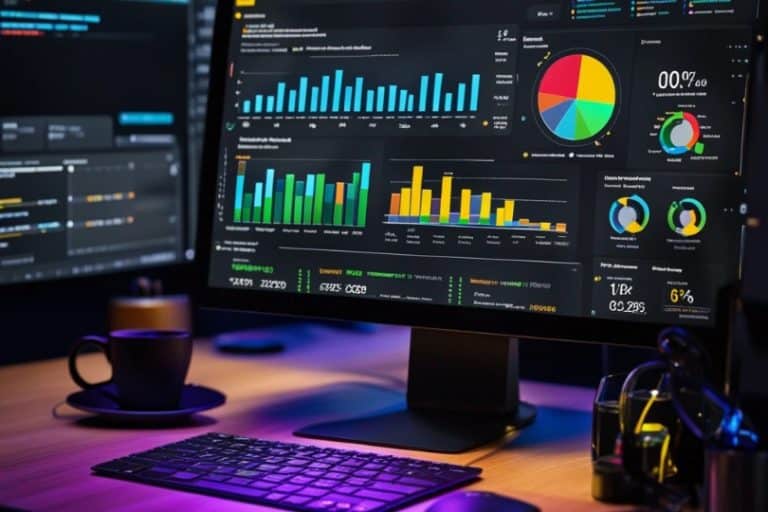How PPC Affect Your Organic Rankings
Pay-Per-Click (PPC) advertising and organic search rankings are two critical components of a comprehensive digital marketing strategy. While they operate differently, they can influence each other in various ways. Here’s an in-depth look at how PPC can affect your organic rankings:
In the realm of digital marketing, businesses often debate the merits of PPC advertising versus organic search optimization. While these strategies are distinct, they are not mutually exclusive. Understanding how PPC can impact your organic rankings can help you create a more cohesive and effective marketing strategy.
1. Increased Visibility and Brand Awareness
• Immediate Exposure: PPC campaigns provide immediate visibility on search engine results pages (SERPs). This increased exposure can lead to greater brand awareness, which can indirectly boost organic search performance.
• Brand Recall: When users repeatedly see your ads, they become more familiar with your brand. This familiarity can lead to higher click-through rates (CTR) on your organic listings.
2. Enhanced Click-Through Rates (CTR)
• SERP Real Estate: Having both PPC ads and organic listings on the same SERP can increase the likelihood of clicks. Users may see your brand multiple times, which can enhance trust and lead to higher CTRs for both paid and organic results.
• User Behavior: Studies have shown that users who click on PPC ads are more likely to click on the same brand’s organic listings in the future. This behavior can improve your organic CTR, which is a positive signal to search engines.
3. Keyword Data and Insights
• Keyword Research: PPC campaigns provide valuable data on which keywords drive traffic and conversions. This information can be used to refine your organic keyword strategy.
• Performance Metrics: Analyzing PPC performance metrics such as CTR, conversion rates, and cost-per-click (CPC) can help identify high-performing keywords that can be targeted in your organic SEO efforts.
4. Improved Content Strategy
• Ad Copy Testing: PPC allows for rapid testing of ad copy. The insights gained from high-performing ad copy can be applied to your organic content strategy, leading to more engaging and effective content.
• Landing Page Optimization: PPC campaigns often involve creating optimized landing pages. These pages can serve as a model for improving the user experience and SEO performance of your organic pages.
5. Increased Traffic and Engagement
• Traffic Boost: PPC campaigns can drive significant traffic to your website. Increased traffic can lead to higher engagement metrics, such as time on site and pages per session, which are positive signals for organic rankings.
• User Engagement: Engaged users are more likely to share your content, link to your site, and return for future visits. These actions can enhance your organic search performance.
6. Competitive Advantage
• Market Presence: Running PPC campaigns alongside organic SEO efforts can help you dominate the SERPs for your target keywords. This dual presence can make it harder for competitors to outrank you.
• Bid on Competitor Keywords: PPC allows you to bid on competitor keywords, driving traffic to your site from users searching for your competitors. This strategy can increase your market share and potentially improve your organic rankings.
7. Local SEO Benefits
• Local Ads: PPC campaigns targeting local keywords can drive traffic to your site from local searches. This increased local traffic can improve your local SEO performance.
• Google My Business: Running local PPC ads can enhance your Google My Business (GMB) profile’s visibility, leading to more clicks and engagement with your GMB listing.
8. Data-Driven Decisions
• A/B Testing: PPC campaigns allow for extensive A/B testing of ads, landing pages, and calls to action. The insights gained from these tests can inform your organic SEO strategy.
• Conversion Tracking: PPC provides detailed conversion tracking, helping you understand which keywords and strategies drive the most conversions. This data can be used to optimize your organic SEO efforts.
9. Budget Allocation and ROI
• Cost-Effective Strategies: By analyzing the ROI of your PPC campaigns, you can allocate your budget more effectively between PPC and organic SEO. This balanced approach can maximize your overall marketing ROI.
• Seasonal Trends: PPC data can reveal seasonal trends and peak times for certain keywords. This information can help you adjust your organic SEO strategy to capitalize on these trends.
10. Long-Term Benefits
• Sustained Traffic: While PPC provides immediate traffic, the insights and optimizations gained from PPC campaigns can lead to sustained organic traffic growth.
• Brand Loyalty: Users who initially discover your brand through PPC ads may become loyal customers, returning to your site through organic search in the future.
PPC and organic SEO are powerful tools in a digital marketer’s arsenal. When used together, they can create a synergistic effect that enhances your overall online presence. By leveraging the insights and benefits of PPC, you can improve your organic rankings and achieve long-term success in the digital landscape.

